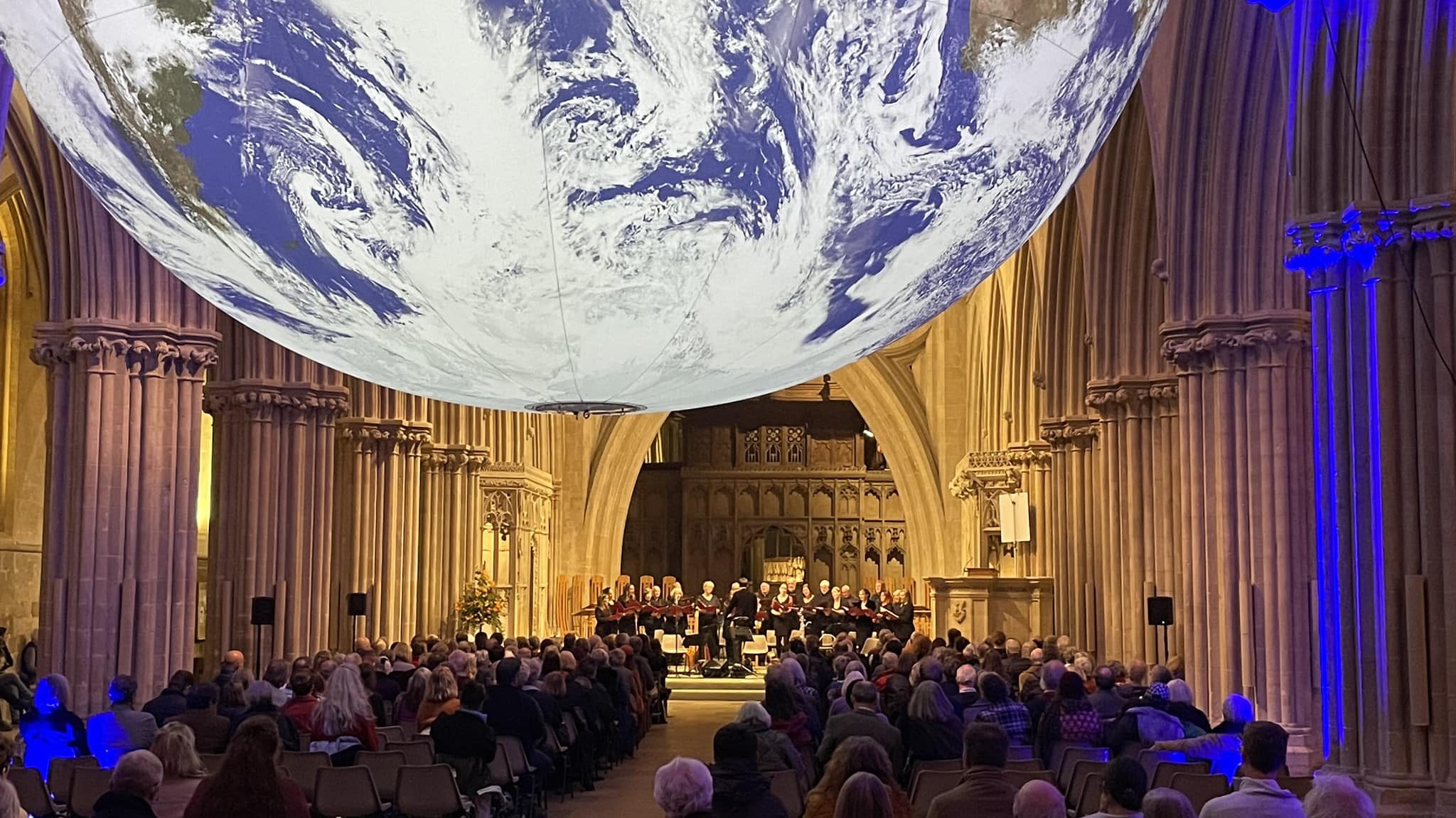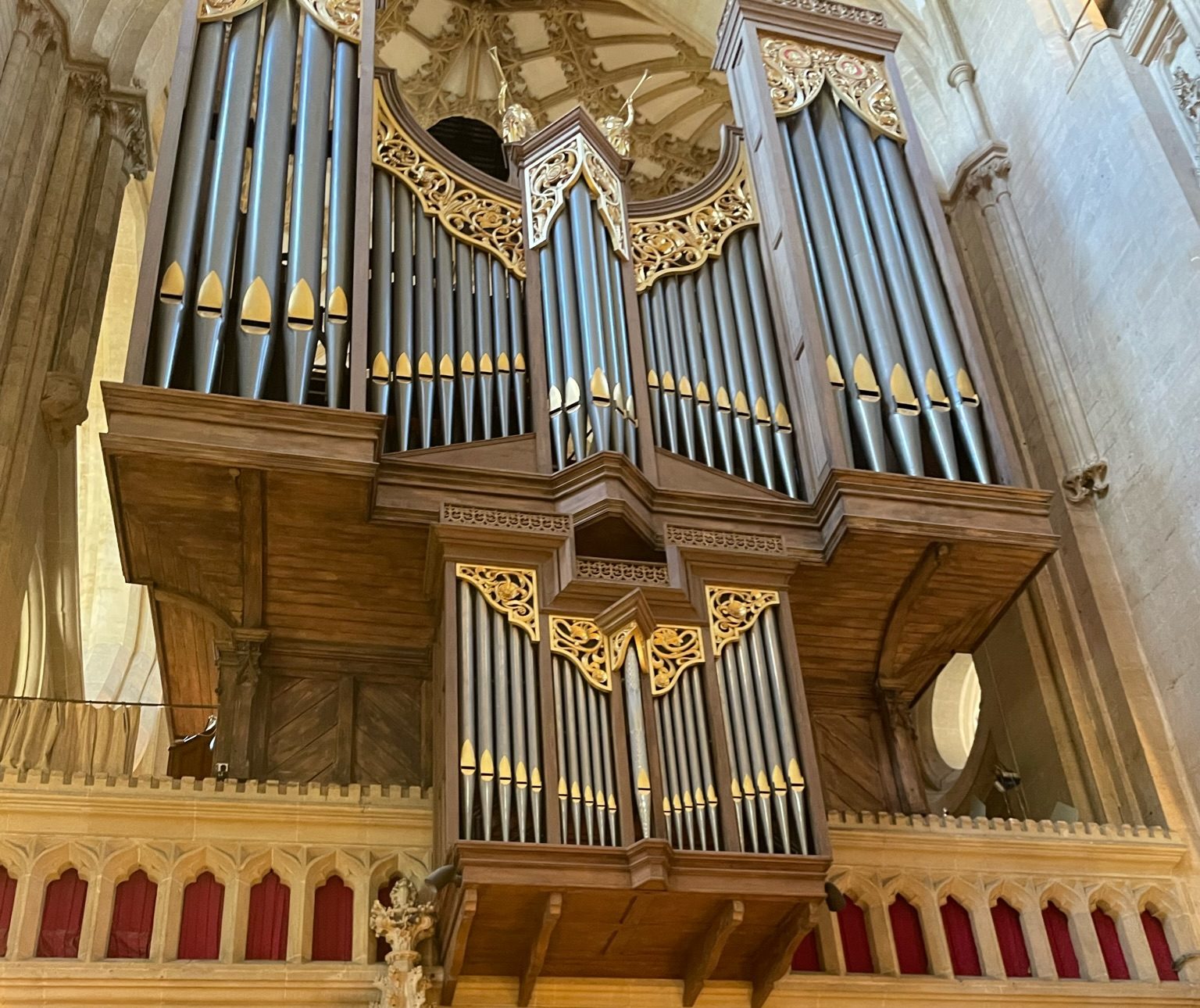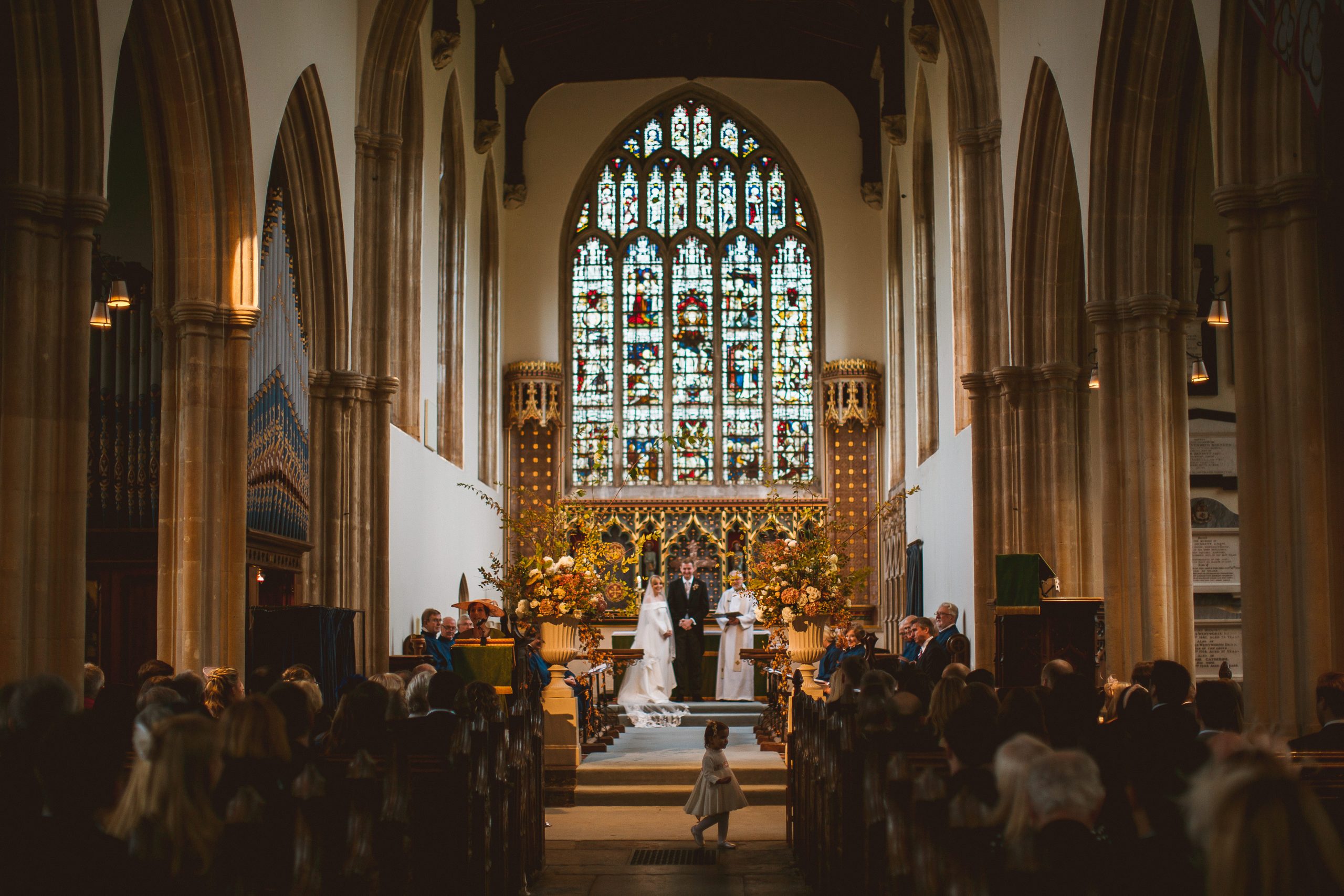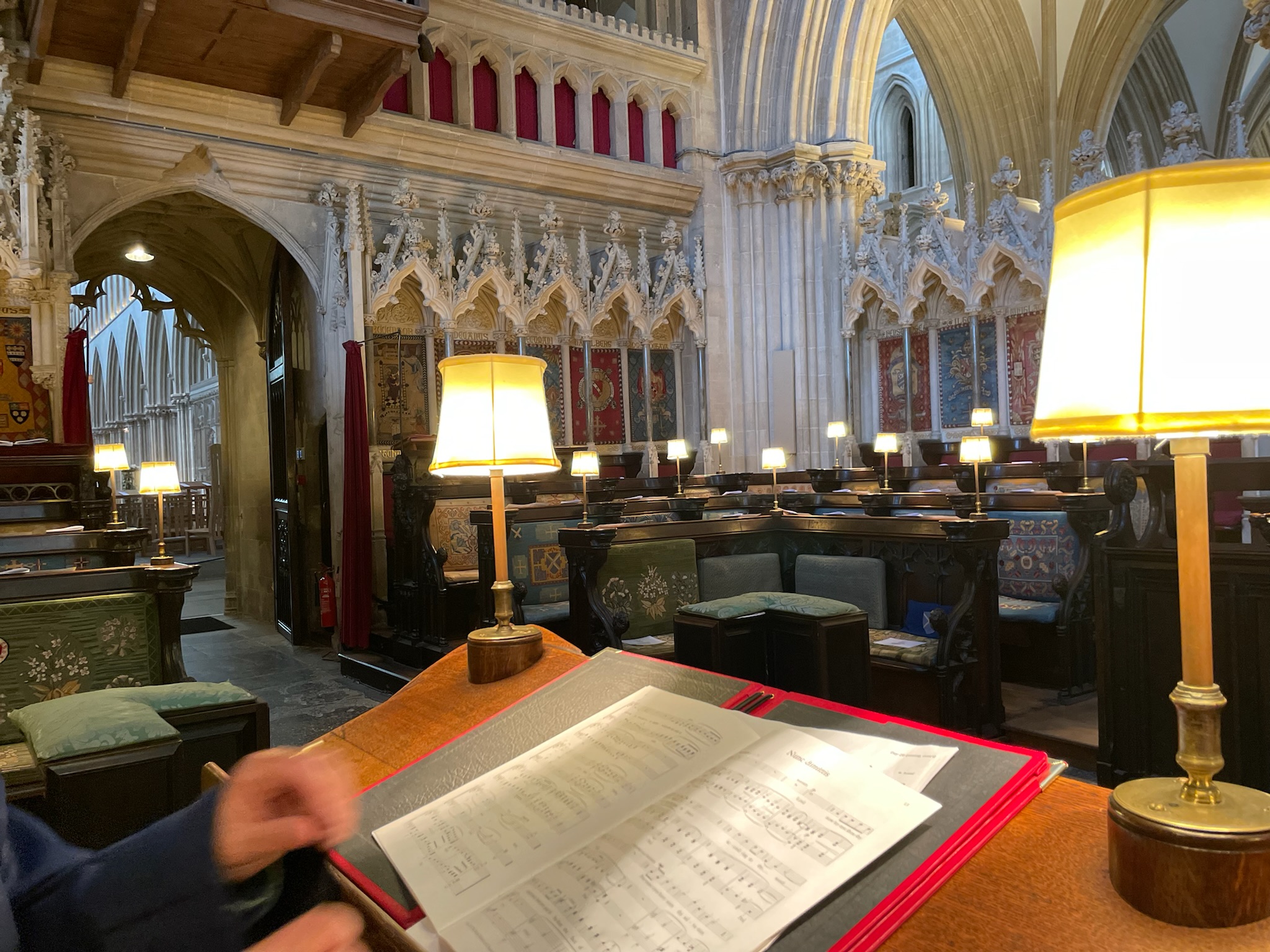Sing Joyfully (William Byrd)
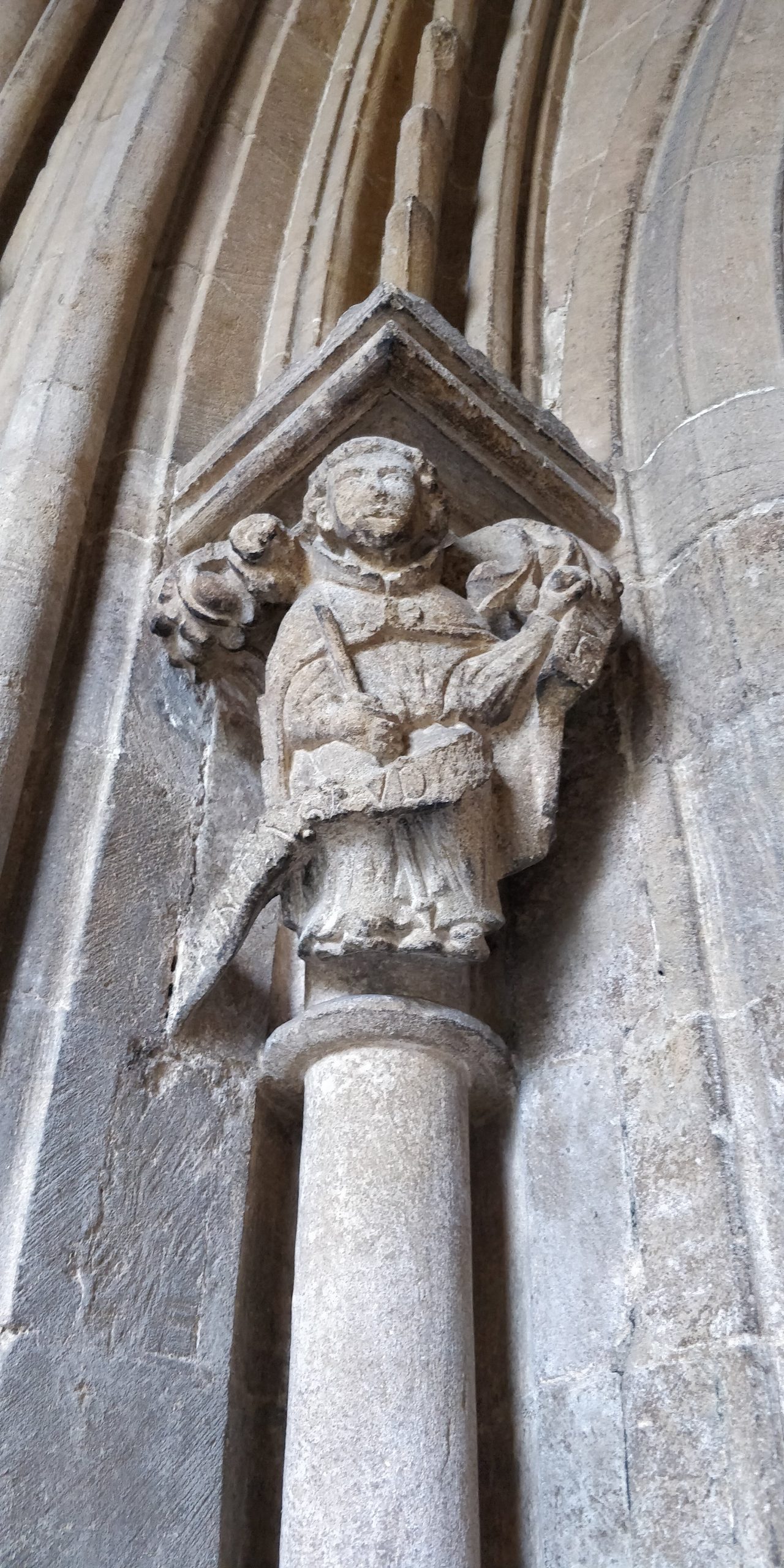
On 23 June 2022 at 5.30pm, Wells Cathedral Chamber Choir is singing Evensong in the beautiful setting of the late 13th Century Bishop’s Palace Chapel, Wells.
Our anthem that evening is Sing Joyfully, one of the festal motets for six voices written by William Byrd when he was a Gentleman of the Chapel Royal, a musician of Elizabeth I’s court. Not only is it a real joy to sing, but Byrd also seems to have used it to conceal in plain sight a protest against the suppression of creativity in ecclesiastical music at the time.
The best estimates place its composition around twenty years after the Elizabethan Settlement of 1559. In theory, this saw the end of the Reformation and a reconciliation of sorts between the various religious factions, but in practice Protestant authorities continued to secure control over religious affiliation and expression for many decades to come. The consequences for ecclesiastical art and music on all sides were stifling, with the latter tolerated to a degree in the church just as long as it prioritised unadorned communication of the text. It is not clear how openly Byrd practised his Catholic faith, but he was firmly on the authorities’ radar from the 1570s, and his addition to the recusancy lists in 1584 led to a suspension from the Chapel Royal for a time. However, Elizabeth I demanded extravagant ritual and music in her Chapel Royal, not least because its splendour was an important strand in the structure and promotion of England and the English Throne as a majesterial and political force. And that allowed Byrd a certain musical freedom. He could at least write fittingly elaborate church music, and he personally enjoyed the Queen’s support until her death in 1603. We can thank every element of that context for Sing Joyfully, and the evidence suggests that it enjoyed immense popularity at the time.
I like to think that Byrd exploited the limited privilege of his situation to put out something of a protest song against the creative suppression of the period. The text is from Psalm 81 (Geneva Bible), and its first four verses exhort the people to praise God in music:
1 Sing joyfully unto God our strength: sing loud unto the God of Jacob.
2 Take the song and bring forth the timbrel, the pleasant harp with the viol.
3 Blow the trumpet in the new moon, even in the time appointed at our feast day.
4 For this is a statute for Israel, and a Law of the God of Jacob
The setting follows the natural rhythms of the spoken word, and each verse is musically delineated from the last by a little structural articulation and new musical ideas.
Within the structure, the six voices of the counterpoint weave about each other in their syncopations and suspensions, and dance along in a kaleidoscopic singing, instrument-playing party. The second verse introduces musical instruments one at a time and, in a word-painted ‘how to make music’ like High Society’s Now You Has Jazz. It ‘takes the song’, very simply at first, and one by one adds in the timbrel (a small hand drum); the harp, with little rising figures; and the viol with its bow strokes and string crossings. The trumpets then announce themselves in fanfares, on brass open (non-keyed) notes, their layout in the voices just as it would be in an ensemble of variously-pitched brass instruments, with the closest intervals in the upper voices and the drone-like pitches of the widest bores (I’m bound to clarify here that our basses are not wide bores – or not the widest, anyway) underpinning the texture.
You can lose the text in all that joyful polyphony, very likely intentionally so if we can take its obscurance as rebellion against the Protestant church’s order concerning the precedence of the words. But you most certainly can’t miss it where the parts unite at the three short homophonic punctuation points. Here, the text is highlighted both by its unified rhythmic reinforcement in the voices and by the contrast with the otherwise dense counterpoint. Thus they shout: Sing loud, SING LOUD! Blow the trumpet! For this is a statute! Here is defiance in the face of the continuing suppression of creative joy. The Protestant church, Byrd says, has got it entirely wrong.
In Sing Joyfully, the path Byrd has negotiated between the rules and demands of the situation has allowed him – to the letter of the law, at least – to offend nobody: within the compositional requirements of the contemporary English church motet, he has obeyed the demands of the Court and the edicts of the Protestant church. But he has also succeeded in creating an articulate protest against the strictures of the time and an absolutely joyful open defence of exuberant sacred music-making, authoritatively and unarguably supported by its own biblical text.
Incidentally, the Feast of Trumpets alluded to in the psalm is still celebrated, falling on a new moon at the beginning of the seventh month in the Jewish calendar. You can find more information about how the Bible says it should be celebrated in the first ten verses of Numbers 29, making it a festival around 3,500 years old at least. Another Abrahamic branch also continues to observe a lunar calendar and, on first sighting the tiny sliver of the new moons that begin and end Ramadan, blesses and greets it with the beautiful words ‘your God is our God…’
